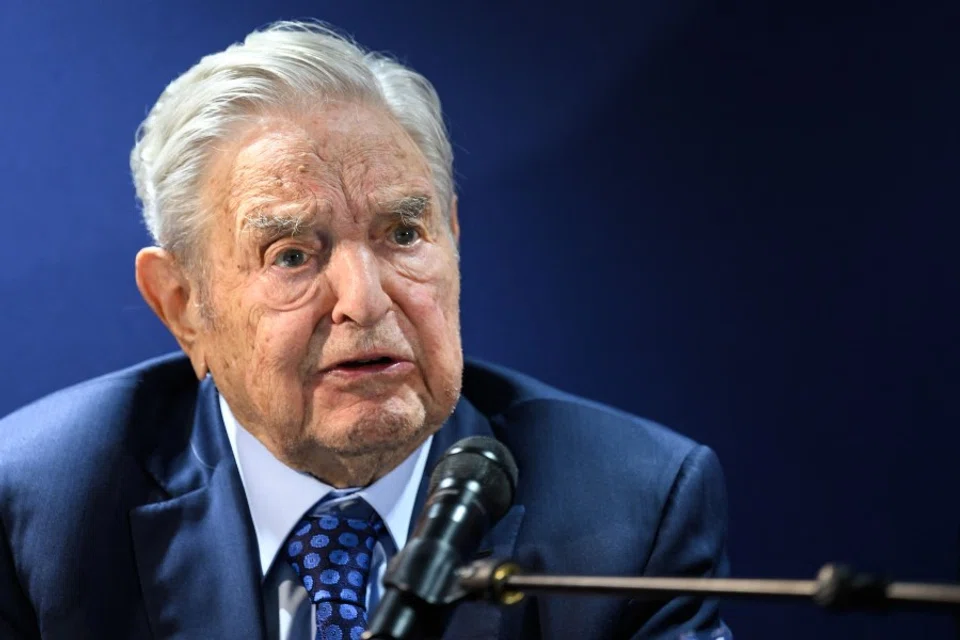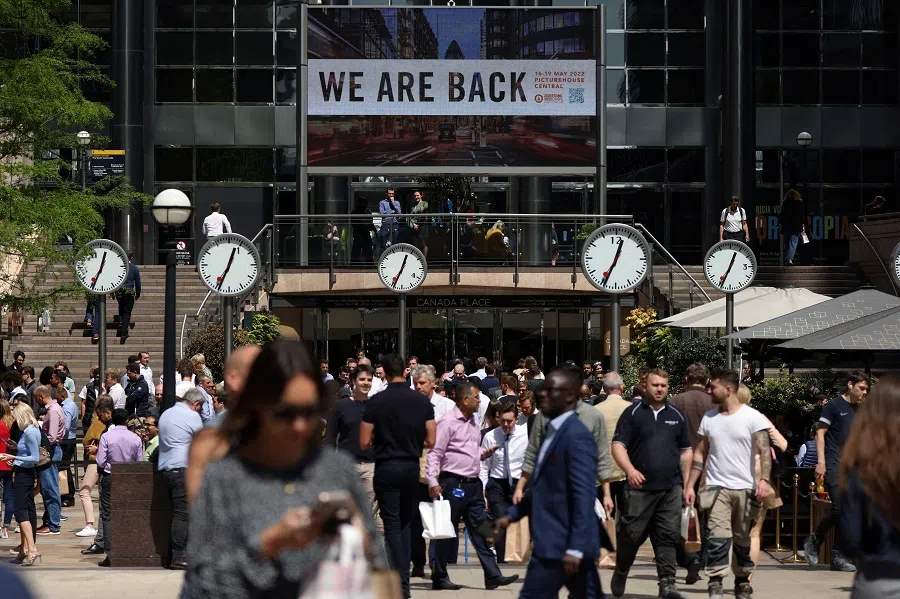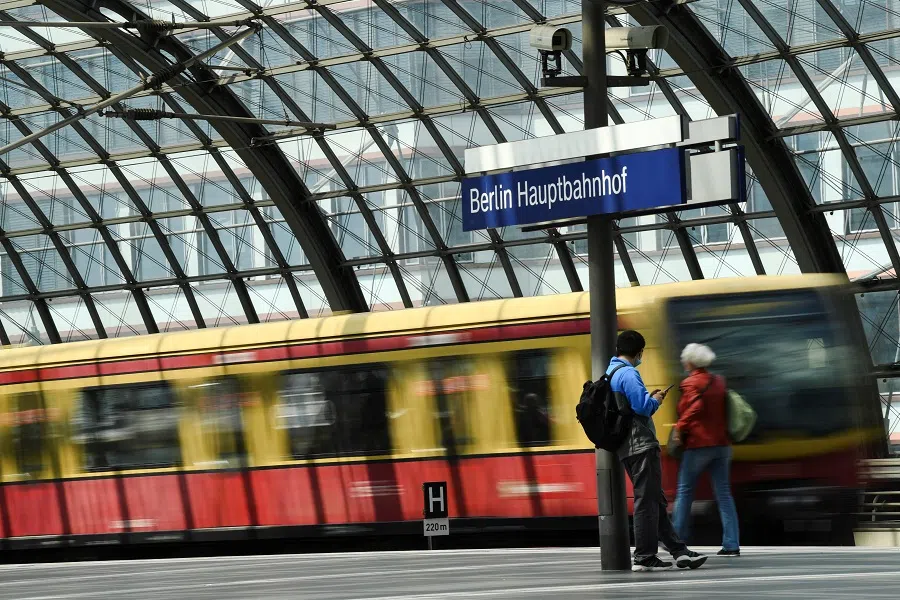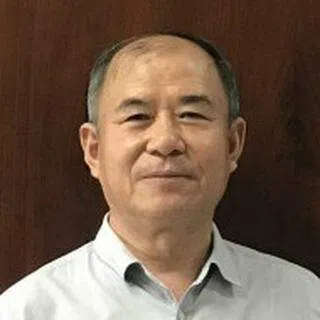Why George Soros is obsessed with defeating Xi Jinping's China
Chinese academic Sun Peisong notes that renowned financier George Soros has always been critical of China's social system. While "the man who broke the Bank of England" has a keen eye for finance, Sun feels that Soros's criticism of China's "closed society" sheds light on his penchant for globalisation and dated means of making the wealthy wealthier.

At the recent World Economic Forum in Davos, renowned Hungary-born American investor George Soros restated his views on the struggle between open and closed societies.
He said, "In an open society, the role of the state is to protect the freedom of the individual; in a closed society the role of the individual is to serve the rulers of the state." In his view, China and Russia are the "greatest threat" to open societies today, and the world is increasingly engaged in "a struggle between two systems of governance that are diametrically opposed to each other".
This is not the first time that the 92-year-old has criticised China. Soros has been expressing his negative views in articles and speeches since the latter half of 2021. He sees China's recent economic regulations and market supervision as "a systematic campaign to remove or neutralise people who have amassed a fortune", and wants open societies to transform China.
"As founder of the Open Society Foundations, my interest in defeating Xi Jinping's China goes beyond US national interests."
Soros said at a seminar in January this year that China, controlled by "a true believer in Communism", is the "greatest threat that open societies face today". Hence, he believes that the Chinese leader should be replaced by someone who follows the Western model, and urges international society to do everything in its power to encourage China to move in the "desired direction".
Soros also wrote in The Wall Street Journal in 2019, "As founder of the Open Society Foundations, my interest in defeating Xi Jinping's China goes beyond US national interests."

While such outright opposition to China is rare among global financiers, his desire to change the nature of the Chinese regime is clear.
Taking advantage of the Western market system
China's economic progress over the past 40 years has fuelled global growth and benefited both developing and developed countries. This is a view held by many experts in the financial and investment fields.
However, Soros's remarks represent the views of another group of people - the financial tycoons. Soros's hostility towards China stems from his uncertainty as to whether he can continue to amass wealth the way he used to, his frustrations with China, and his attachment to the era when multinational capital could get him anything he wanted.
Indeed, Soros is a man whose worldview is shaped by money and has a unique way of grabbing wealth.
In reality, Soros is a paradox. On the one hand, he appears to be a political figure: he supports dissidents from some countries and helps them seek "democracy". On the other hand, he also appears to be an idealistic intellectual who flies high the banner for "open societies", like an enlightened social pioneer. A man who stays ahead of the curve in the stock markets, in his prime, Soros would meet "one president for breakfast and another for dinner".
Soros's trademark is his ability to cloak his identity as a businessman under the halo of advocating an ideal political order through political and philosophical discourse, and to amass great wealth by taking advantage of the Western market system.

In 1992, Soros launched a speculative attack on the British pound, despite claiming to love Britain. He was chastised for taking money from every British taxpayer, reportedly making a profit of US$1 billion. Indeed, he came to be known as "the man who broke the Bank of England".
He claims to love the people of the Soviet Union and thus started a foundation in the Soviet Union in 1987. However, he made a fortune in 1994 during a mass privatisation programme, when the shares of state-owned Soviet enterprises were distributed to the people at very low prices and there was a serious lack of private investment funds. When accused of robber capitalism, he replied that he had "no sense of guilt" in the markets.
Soros set up various foundations across 25 countries, mostly in Eastern Europe. The combination of unprecedented opportunities and abundant capital produced a profit explosion. Most of the Open Society Foundations (OSFs) he set up in numerous countries also include his own business plans.
Soros's trademark is his ability to cloak his identity as a businessman under the halo of advocating an ideal political order through political and philosophical discourse, and to amass great wealth by taking advantage of the Western market system.
Frustrations with China
China's rise no doubt provides a reference case for replacing the Western model and presents a possible end to wealthy Westerners being able to freely amass wealth from all over the world. This is indeed a frightening prospect for people like Soros, and also a reason why he opposes China.
Chinese culture does not advocate putting the wealthy in charge.

Soros's hatred for the Chinese system also stems from the frustrations he has faced in the country. During the Asian financial crisis in 1988, he learnt a painful lesson in Hong Kong. Later in 2011, his covetous plans for the Chinese financial market failed again. Throughout his career, China has been a hurdle he has not overcome.
Thus, he made "defeating China" his life goal. He believes that open societies are where people like him can live and thrive. He acknowledges that his behaviour interferes in the internal affairs of other countries as the act of advocating open societies extends beyond national sovereignty. Evidently, the Chinese system and Soros's pursuits are at odds.
While Soros's plan to defeat China is consistent with the US's current geopolitical strategy, he is out of touch with reality if he thinks that China, under the pressure of the US and its allies, will turn into the kind of society that he can profit from.
China today does not think that the US - a social system where the richest 1% own more wealth than the bottom 95% - is democratic, universal or a model that should be emulated. Indeed, Chinese culture does not advocate putting the wealthy in charge.
The era in which Soros found success - and is attached to - is one where the concept of globalisation was oversold.
Even though Soros is a Jew who once lived under Nazi rule, he fails to understand that his and the US's attempt at transforming China is in fact similar to the Nazi belief in German supremacy and that the world must be healed by the German spirit.

The era in which Soros found success - and is attached to - is one where the concept of globalisation was oversold. He believes that China's rise against the wishes of the West has caused global economic decoupling. For him, a defeated China would be better for the "open society".
When the globalisation mantra was at its peak, public opinion described social realities and changes in terms of "the world is flat", open and connected. Proponents of globalisation questioned the organising principle of the state and society, and believed that borders and barriers would obstruct progress and prosperity.
Under such a paradigm, not only would trade and investment be globalised in the future, but also cultures, shared knowledge, principles and norms. Adapting to this trend, countries of Europe, one of the most developed regions in the Western world, put aside national sovereignty and formed a union.
Thus, at that time, it was not only forms of government with clear national identities that could play a role in international politics. Non-governmental organisations (NGOs) could also pay a major role, encroach on national structures, interfere in matters within the scope of state authority, and share political authority.
Now, the world has reached a point where it needs to "reclaim its sovereignty".
Hence, by setting up NGOs such as the OSFs in the name of advocating "social openness", Soros was able to interfere in the political agendas of other countries and make a career for himself.
Now, the world has reached a point where it needs to "reclaim its sovereignty". The UK left the EU to do so, while the former Trump administration withdrew the US from various international organisations, opposed free trade and investment, rejected immigrants, set up national security barriers and encouraged a climate of protectionism.

Following the outbreak of the Russia-Ukraine war, the West's sanctions against Russia have brought globalisation to an unexpected end. In the process of deglobalisation, non-governmental actors' interference in countries' internal affairs is fast losing legitimacy. Transnational operations of NGOs have also been obstructed by the West's new agenda. In the end, efforts to defeat China have not reversed the downfall of Soros's OSFs.
China's pursuit of common prosperity
In practising socialism, China believes that common prosperity is the essence of modernity and hopes to reduce the gap between the rich and the poor as well as ensure that wealth is more evenly distributed. The foundation of the Chinese socialist project has always included the goal of achieving equality, a universal pursuit of all socialists.
The value of the Chinese economic model is perhaps most clearly seen in the fact that China is getting closer to becoming the world's largest economy. While China has numerous political, economic and social problems that need to be solved, China's economic advancement has lifted hundreds of millions of people out of poverty and created a massive urban middle class.
... helping the US government thwart or defeat China should not be the goal of outstanding people such as Soros. On the contrary, advocating China-US cooperation would be better for our world.
Since modern times, the Chinese society has never been as wealthy as they are today. It accomplished in a few decades what the West took more than two centuries to achieve, and also modernised various aspects of its economy, from geographic space to production methods.
Soros is a man with unique social ideals. In an increasingly multipolar world, helping the US government thwart or defeat China should not be the goal of outstanding people such as Soros. On the contrary, advocating China-US cooperation would be better for our world.
Related: Why China is embarking on the journey of 'common prosperity' | Why the Americans know China better than the Chinese know the US | Is Chinese socialism superior? | Why democracy is failing and why some authoritarian regimes might just work | Every individual counts: China should go for 'common development' rather than 'common prosperity'





